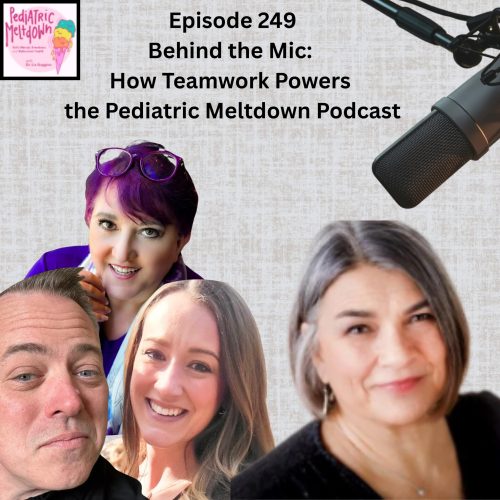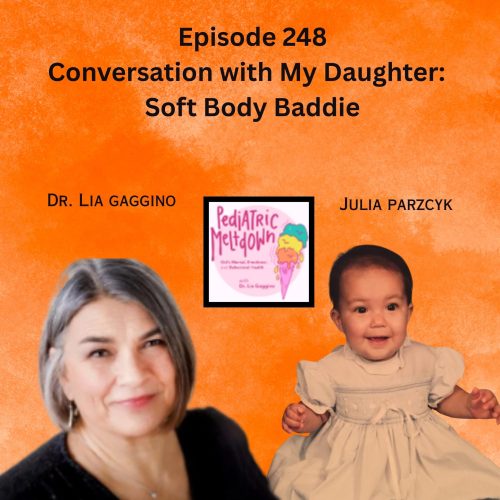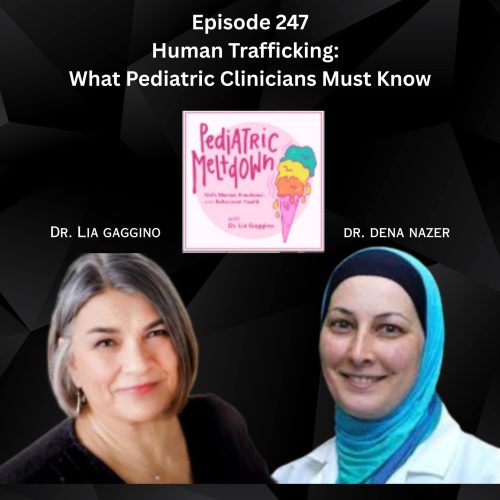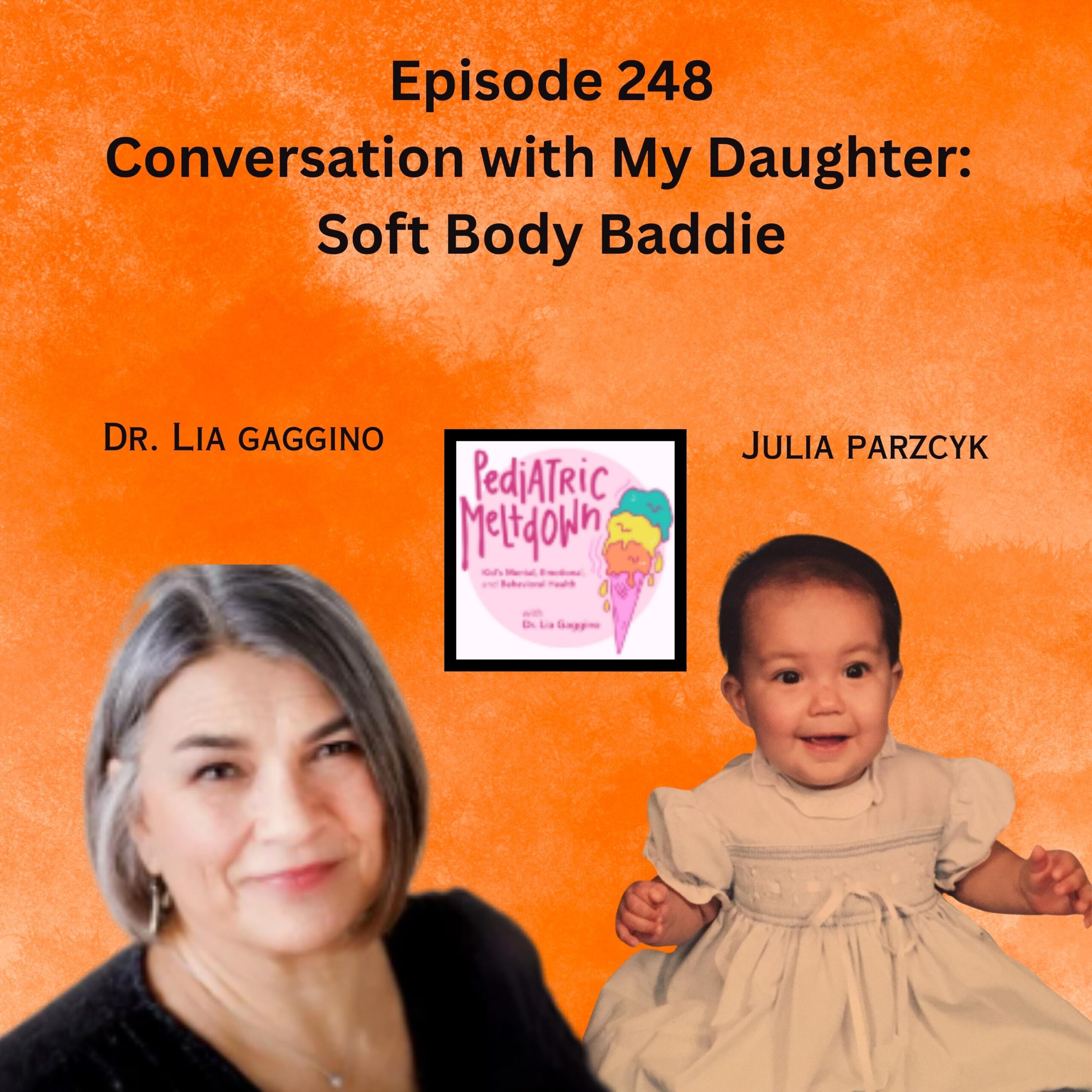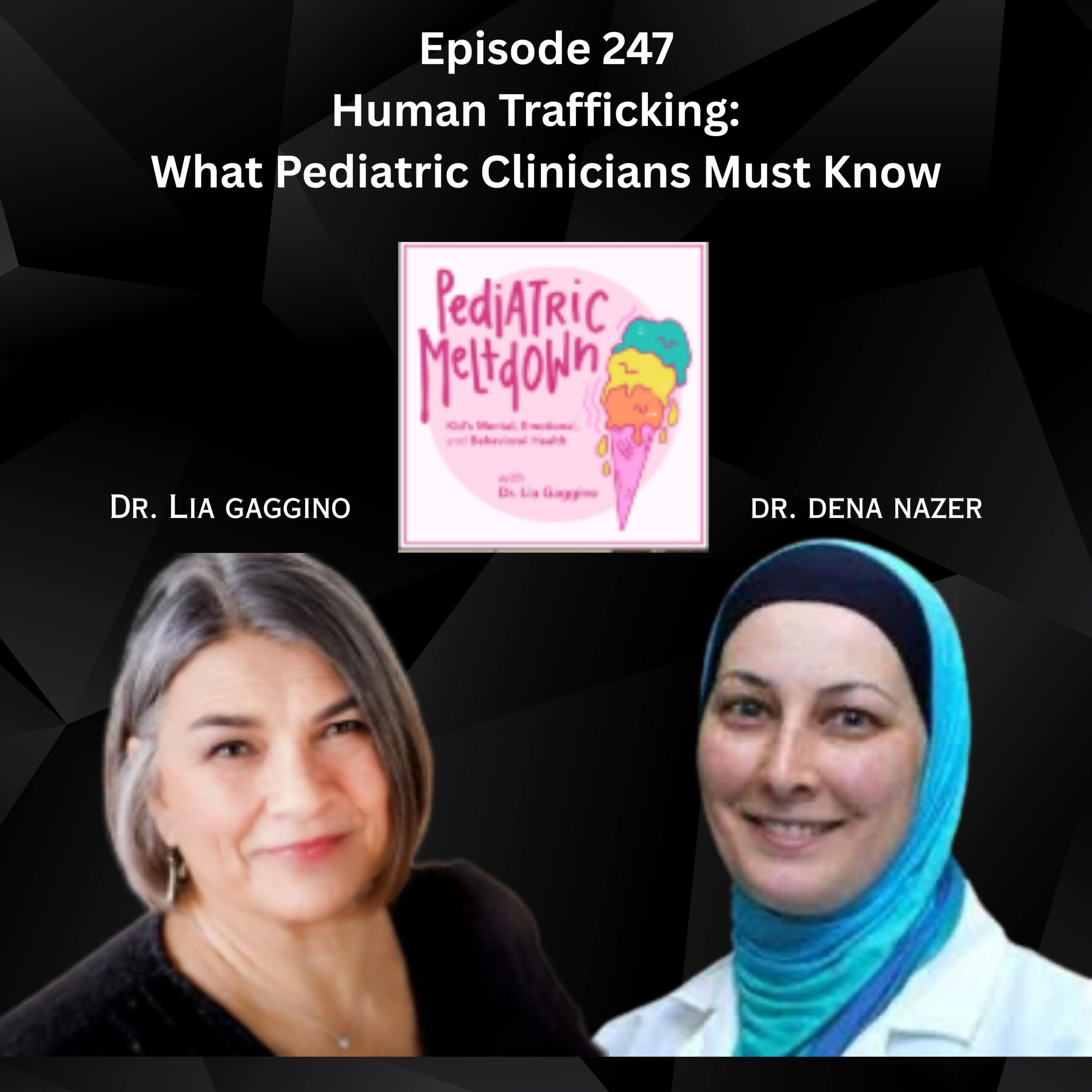Welcome to Pediatric Meltdown! In Today’s episode, our guest is Ken Ginsburg, MD, MSEd. Dr. Ginsburg re-frames adolescence – not peril and drama, but instead, a time marked by exploration, curiosity, and joy. Parents often believe that they won’t matter anymore, but in reality, they matter more than ever. While teens are embarking on their journey to independence, the adults in their lives, us too, serve as guides and teachers. We are the emotional containers for big feelings and “lend our calm”. Teens are “super learners” and the world is their oyster if we paint the journey with hope and excitement. Pediatric clinicians offer a safe space to share all the ups and downs. For teens and parents, knowing that we have their back is golden!
Dr. Ginsburg is the Founder & Program Director, of the Center for Parent and Teen Communication. He is a physician, adolescent medicine specialist, and Professor of Pediatrics at Children’s Hospital of Philadelphia. He is committed to preparing adults to be the kind of people that adolescents deserve in their lives. He supports local, regional, and national organizations in developing programs and policies that strengthen families and see young people through a strength-based lens. He speaks to parent, professional, and youth audiences nationally and internationally and is the author of 5 award-winning parenting books as well as a toolkit for youth-serving professionals. CPTC is rooted in his strength-based philosophy and resilience-building model.
[00:30 – 08:59] Pediatric Meltdown: Dr. Ken Ginsburg on the Importance of Adolescence
- Dr. Ken Ginsburg is the founder and program director of the center for parent and teen communication.
- He is a physician adolescent medicine specialist and professor of pediatrics at the children’s hospital of Philadelphia.
- He supports local, regional, and national organizations in developing programs and policies that strengthen families and see young people through a strength-based lens.
- He speaks to parent-professional and youth audiences nationally and internationally, and is the author of five award-winning parenting books as well as a toolkit for youth-serving professionals.
- CPTC is rooted in his strength-based philosophy and resilience-building model.
[08:59 – 17:37] How to Raise a Resilient Child
- At some point, parents need to learn how to do things independently, and adolescence is a crucial time for this.
- Parenting during this time can be difficult because parents are anxious and want to protect their children from harm.
- To help parents navigate this stage successfully, they need to remember that their children are growing and developing and that mistakes are part of the process.
- Parents should also share their strengths with their children and help them develop coping mechanisms for when stress is unavoidable.
[17:37 – 26:38] The Truth About Adolescences
- Adolescents are emotional and rational beings, with brilliant emotional brains.
- The emotional brain takes over during adolescence, and this can be challenging for adults to manage.
- Adolescents need our guidance and support to think, plan, and reason.
- Communication with adolescents is different than when children are younger and requires a calm, respectful, and understanding approach.
- Adolescents are not inherently risky and need our guidance to explore their boundaries safely.
[26:39 – 35:06] How to create golden opportunities at the limit of what they know
- To create golden opportunities at the limits of what they know, so that their brains, which want more and more knowledge, get it there and they don’t have to go beyond those points.
- Make school incredibly enriching. You make home enriching, you make it so that when the kids are at their limits, their brains go as happy brains.
- If you don’t give them those golden opportunities and don’t set boundaries, then they will push too far and go into risk territory.
[35:06 – 43:39] pediatricians offer free resources to help parents have strength-based conversations with their kids
- Pediatricians should have conversations with their patients about their emotions and stress levels, to create an opportunity for the patient to ask questions
- Pediatricians should partner with therapists to convey this message to parents
- Good parents do not raise perfect children and recognize when their child needs more than they can give
- Pediatricians should set the stage for these conversations by having them with the patient’s parents beforehand
[43:40 – 51:57] pediatricians: Celebrating relationship, not content
- Pediatricians should be coaches who help their patients thrive and survive, and they should focus on behavioral change as a process that has nine events
- when a patient comes to the pediatrician with good news, the pediatrician should celebrate the relationship instead of content
[51:02 – 01:03:02] Closing Segment
- Connect with Dr. Kenneth Ginsburg
- See links below.
- Final Words
- This conversation may challenge you.
- Words matter, and the social dialogue around adolescents and our own words may set them up for a struggle.
- The myth teenage brains, all engine, no breaks, they’re risk takers. They see themselves as invincible and they hate their parents. Versus teens are super learners explores, and very much need adults, especially parents they care about.
- To our parents, we must let them know that they matter enormously.
- Our job is to reframe adolescence for parents and teens and our parents.
- Start the conversation about adolescence and what it means when kids are coming to your practice, start at 10 or 11, and talk with the patient and the parents about what to expect and what is coming next.
- By making time for kids with the clinician. One-on-one, we are building strategies for independent thinking, and help parents know that we are not keeping secrets.
- There are going to challenge cuz it’s life. The best thing we can do is to co-regulate and lend our calm.
- When kids share successes with us rather than wow. “So proud of you, we might instead say, I am so honored that you included me to share in your life, the ups and downs.”
- We can let parents know that we have their backs too.
- Check out the show notes for many resources and get ready for Dr. Ginsburg’s new AAP book.
- Expect magic. Thank you so much for listening as always
Resources Mentioned:
- Stress Management Plan:
https://parentandteen.com/strategy_plans/teen-stress-management/
- Parenting Tip Sheets:
- Books by Dr. Ginsburg:
Tweetable Quotes
“If you don’t give them those golden opportunities and don’t set boundaries, then they will push too far and go into risk territory.” – Dr. Kenneth Ginsburg
Connect with Dr. Kenneth Ginsburg through the following links:
- https://www.facebook.com/parentandteen
- @parentandteen (Twitter)
- @Parentandteen (Instagram)
- Linkedin.com/company/parent-and-teen/ (Linkedin)
- Youtube.com/parentandteen
THANK YOU FOR YOUR SUPPORT!
Pediatric Meltdown was listed as a Top 20 Pediatric Podcast on FeedSpot.
If you’d like to connect with me, you can find me on LinkedIn, Facebook, Instagram, and Twitter, or email me at gagginol@medicalbhs.com or gagginol@yahoo.com. To learn more about me visit https://www.medicalbhs.com/
LOVE WHAT YOU HEAR? Leave us a 5-star review so we can continue to provide you with great content. Share this episode and help people know more about children’s health and well-being.



